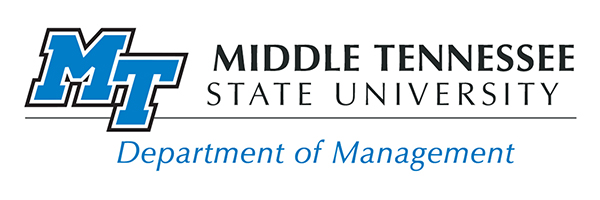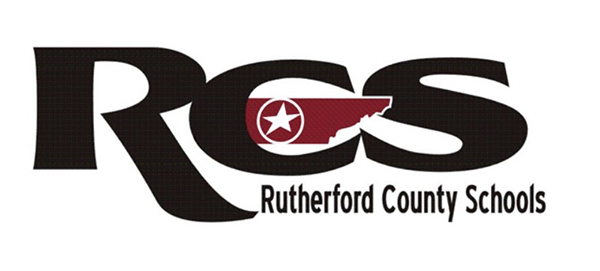With supply chain disruptions and resulting product shortages and delivery delays again in the headlines, Middle Tennessee State University is looking to address current and future challenges in this area through a new bachelor’s degree in supply chain management launched this year.
The Jennings A. Jones College of Business pursued and received approval in the spring to transform its supply chain management concentration within its Department of Management into a standalone major that provides graduates a leg up in a burgeoning job market.

MTSU management professor Kimball Bullington is among several faculty who teach courses in the new supply chain management degree program at Middle Tennessee State University in Murfreesboro, Tenn. (MTSU file photo by J. Intintoli)
MTSU supply chain management professor Kimball Bullington said the university’s effort to develop the degree program, which launched over the summer, is certainly relevant in a state within a day’s drive of 60 percent of the U.S. population and that has already attracted numerous logistics-related companies and industries.
Tack on the recent supply chain snags amid the ongoing coronavirus pandemic, and the new degree takes on added importance in positioning the Midstate workforce to fill in-demand jobs within a booming profession that touches on areas ranging from purchasing to logistics to data analysis.
 “Supply chain management is a common path to CEO because you have to have broad experience. It’s very upwardly mobile,” said Bullington. “You may get into a particular job and say, ‘I don’t know if I want to do this forever.’ It doesn’t matter because you can move to a different role. There’s a lot of flexibility. … and really no ceiling.”
“Supply chain management is a common path to CEO because you have to have broad experience. It’s very upwardly mobile,” said Bullington. “You may get into a particular job and say, ‘I don’t know if I want to do this forever.’ It doesn’t matter because you can move to a different role. There’s a lot of flexibility. … and really no ceiling.”
MTSU’s program is designed so that students gain the technical skills and real-world experience to prepare them for a career in this high-wage, high-demand field. Making up 37% of all jobs in the region, supply chain management is one of the fastest growing industries, with the average starting annual salary for graduates ranging from $55,000 to $65,000.

Dr. David Urban
“The new B.B.A. in Supply Chain Management meets the huge demand for skilled supply chain professionals throughout the Greater Nashville region,” said David Urban, dean of the Jones College of Business. “Employers and students are praising the Jones College program as a practical response to a real market need. This program will grow as our region continues to be a ‘go-to’ area for companies wishing to expand the efficiency and effectiveness of their supply chains.”
Bullington noted that recently as many as 100 large container ships were anchored outside the ports of Los Angeles and Long Beach — the busiest ports in the country — because of supply chain issues, the equivalent of 500,000 truckloads of inventory. Such snafus have ripple effects that stretch across the nation all the way to Middle Tennessee.
“We are a logistics hub,” said Bullington, noting supply chain behemoth Amazon, with multiple locations in the Midstate region, along with Dollar General and Tractor Supply having headquarters in the region. “Shortages are all around us right now because of the pandemic, so supply chain management is very visible right now. We need people to solve supply chain problems.”

Jones College of Business alumnus Tim Fallon (’11), vice president of manufacturing, Nissan Canton Vehicle Assembly, is an MBA graduate but works in the supply chain management industry and has been active with the MTSU Department of Management supply chain management program as a visiting speaker. (Submitted photo)
Industry ‘very interested’ in graduates
MTSU’s program leverages its industry contacts to get access to real data sets for students to study and address, at some level, real-world problems. Bullington is among six full-time faculty and one adjunct teaching courses within the program, which is seeing increased demand at the graduate degree level.
“We have a lot of industry very interested,” Bullington added. “We have industry folks who come into our classrooms, so it’s not going away.”
 After listening to industry feedback for several years, the Department of Management first developed a supply chain management concentration, showing strong student demand over a three-year period — from 14 students initially to 112 three years later and growing. Approval for a degree program from the MTSU Board of Trustees and the Tennessee Higher Education Commission would follow earlier this year.
After listening to industry feedback for several years, the Department of Management first developed a supply chain management concentration, showing strong student demand over a three-year period — from 14 students initially to 112 three years later and growing. Approval for a degree program from the MTSU Board of Trustees and the Tennessee Higher Education Commission would follow earlier this year.
Letters of support for the transition came from area logistics and distribution heavyweights such as Ingram Content Group, Nissan North America and Kasai North America, to name a few. Other major local employers of supply chain professionals include UPS, OHL/Geodis, Under Armour, Dollar General, Tractor Supply, Kasai, Geodis, Bridgestone, Frito Lay, and Gap Inc.
 “There is a pressing need for qualified personnel that understand the current processes and systems used by industry today,” said Bob Henry, vice president of corporate purchasing with Kasai North America.
“There is a pressing need for qualified personnel that understand the current processes and systems used by industry today,” said Bob Henry, vice president of corporate purchasing with Kasai North America.
Rob Thyen, vice president engineering and facilities for GEODIS, and an MTSU Supply Chain Advisory Board member, said he believes “having a supply chain degree available will greatly benefit the community, create collaborative research opportunities, and increase career placement within the Midstate.”
“As an organization that is one of the leading (third-party logistics operations) in the U.S., and headquartered in Brentwood, Tennessee, we are always searching for top talent with supply chain backgrounds,” Thyen said. “Having a supply chain degree available from MTSU will certainly have an impact on our ability to hire people that already have roots in the Middle Tennessee area.”
Pipeline from area high schools
Rutherford Works, the economic and workforce development division of the Rutherford County Chamber of Commerce, has worked with local employers for the past several years to help identify technical skills gaps and then worked with educational partners such as MTSU to develop training for the high-wage, high-demand jobs currently available in the community.
 MTSU supply chain faculty also have been actively involved with Rutherford County Schools’ supply chain management pathway that is now available seven high schools: Blackman, Riverdale, Stewarts Creek, Rockvale, Eagleville, Holloway and Smyrna. Blackman, Riverdale, and Stewarts Creek represent the No. 1, 3, and 5 feeder high schools for Middle Tennessee State University.
MTSU supply chain faculty also have been actively involved with Rutherford County Schools’ supply chain management pathway that is now available seven high schools: Blackman, Riverdale, Stewarts Creek, Rockvale, Eagleville, Holloway and Smyrna. Blackman, Riverdale, and Stewarts Creek represent the No. 1, 3, and 5 feeder high schools for Middle Tennessee State University.
For more information about MTSU’s supply chain management program, visit https://www.mtsu.edu/programs/management-supply-chain/ or call department Chair Jill Austin at 615-898-2736.
— Jimmy Hart (Jimmy.Hart@mtsu.edu), Darby Campbell-Firkus (Darby.Campbell@mtsu.edu)

COMMENTS ARE OFF THIS POST